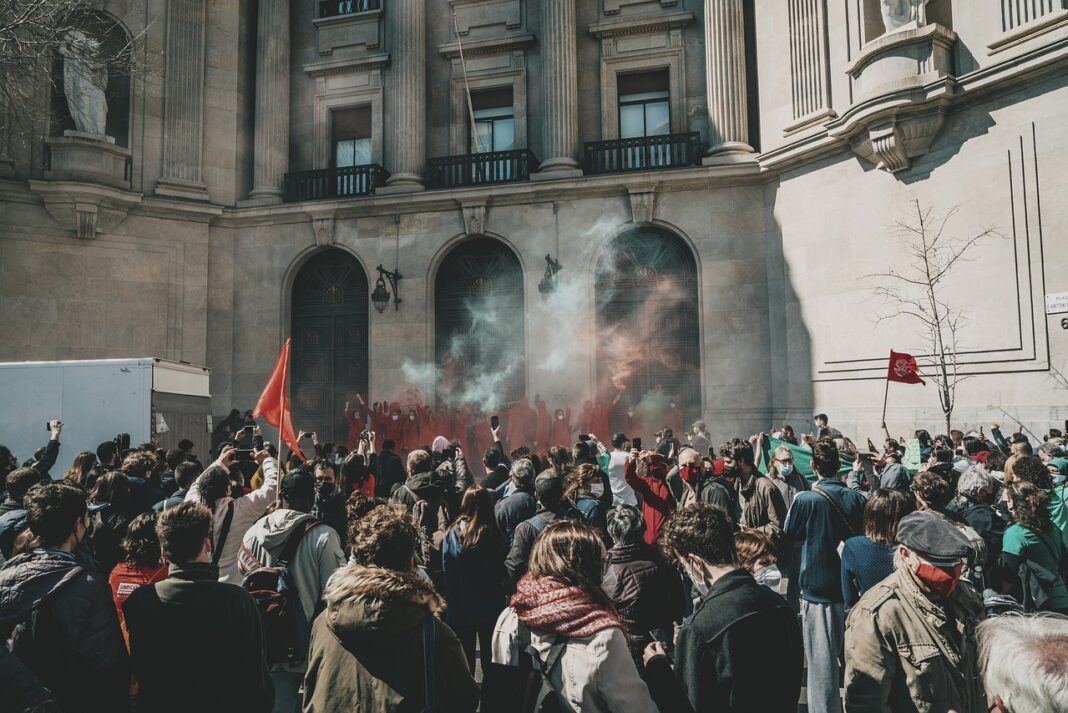Across the United States, the political divide is growing deeper, particularly as the country prepares for the new administration set to take office in January 2025. Visible tensions are rising, especially regarding foreign policy decisions of the U.S. government. One of the most visible demonstrations took place in New York City, where protesters briefly disrupted the Macy’s Thanksgiving Day Parade. The disruption was one of a series of similar incidents, as part of a growing grassroots movement in the U.S. opposing U.S. support for Israel’s actions in Gaza. The protesters were pushing for awareness about the growing victims of civilians in the war-torn region. They say U.S. support of Israel’s military actions is making the humanitarian situation in Gaza worse, affecting food, medicine, and safety for the people in the area. The protests reflect a more global outcry for a policy change by the U.S., with people from around the world calling for more to be done for Palestinian rights.
The emergent movement for an arms embargo against Israel is therefore gaining momentum. Proponents of this policy change believe that cutting off U.S. military aid to Israel may be an important first step toward reducing violence and suffering in Gaza. They believe that by withholding the flow of weapons and military assistance, the U.S. could force both Israel and the Palestinian factions toward peace talks and ultimately help bring an end to the violence affecting countless families. Calls for an embargo of this nature are not solely restricted to the U.S. but part of a global trend of people and organizations calling for more accountability with foreign policy, especially where blatant human rights abuses occur. Demonstrators and activists have echoed the voices of the afflicted in Gaza, calling on the U.S. government to reevaluate its involvement in the conflict and to prioritize humanitarian causes.
This protest and larger movement represent a seismic shift in the way many Americans, and indeed people around the world, are viewing the United States’ involvement in foreign conflicts. The United States has traditionally been looked upon as a staunch stalwart ally of the State of Israel, providing enormous military and financial support. Yet, as the humanitarian situation in Gaza continues to deteriorate, more and more are starting to question what that support truly means on the ground. More and more Americans are voicing that the U.S. needs to step up and actually represent Palestinians, asking for a recasting of United States policy in the Middle East.
With the growth of public concern for the issue, debates about US foreign policy and human rights are going to continue shaping the course of political debate for years to come. Protests are mounting, policy change demands are getting louder and louder; it is clear that U.S. international conflict involvement, especially around the Middle East, does not and will not be at ease anytime soon. It is anyone’s guess how the new administration will answer the pressure, but certainly all these issues will have significant roles to play in political discourse as transition into 2025 looms. And all these show that the people want an increasingly balanced way of handling foreign policy, and this may play a very key role in how the U.S. would engage with future conflicts around the world.

